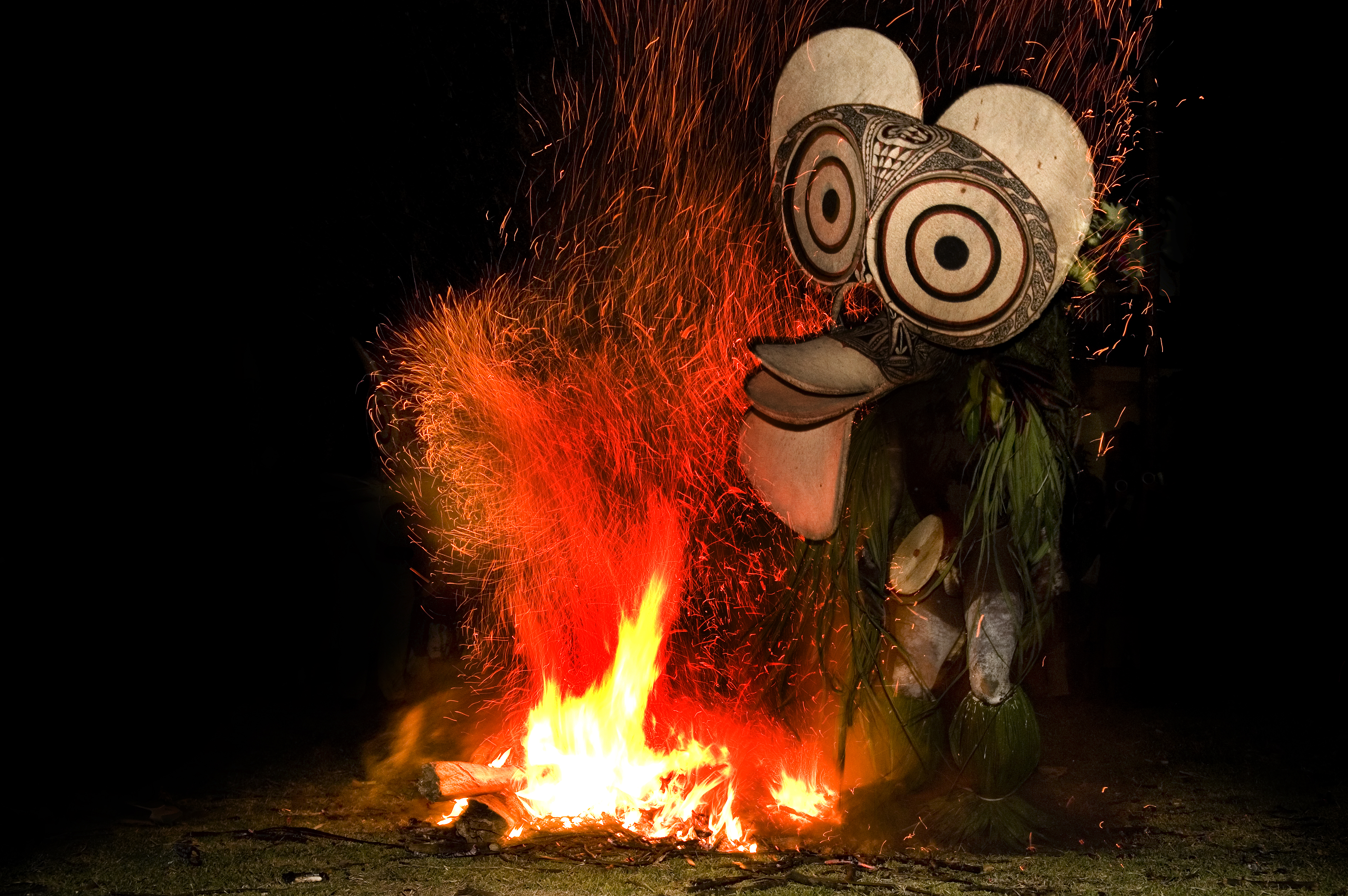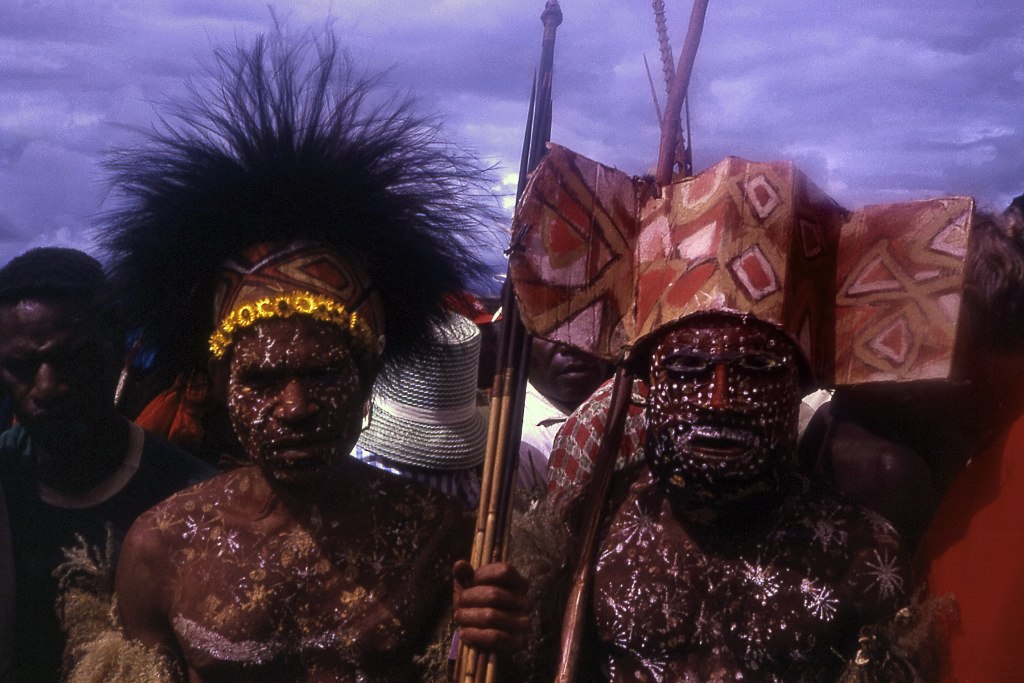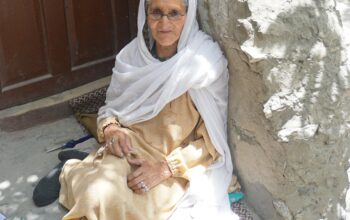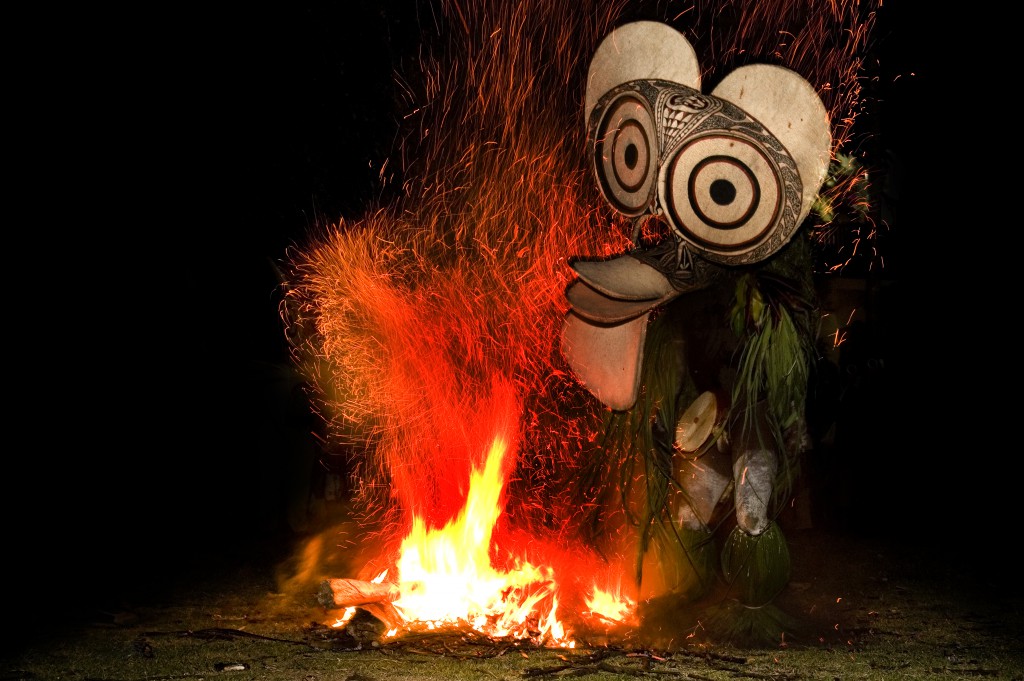 The witch, whose mouth is stuffed with dirty rags so that she can only utter suffocated screams, is strapped to a wooden pole upside down, naked, and eyes bandaged. She is encompassed by a circle of people from her village, people she knows. Probably even her closest family members and friends are among them. A group of men armed with bush knives pile wooden branches around her. The scene gets showered with gasoline, and then she is burnt, alive. The silent crowd stands and watches; some will even film this atrocity with their mobile phones and later share it on the social media.
The witch, whose mouth is stuffed with dirty rags so that she can only utter suffocated screams, is strapped to a wooden pole upside down, naked, and eyes bandaged. She is encompassed by a circle of people from her village, people she knows. Probably even her closest family members and friends are among them. A group of men armed with bush knives pile wooden branches around her. The scene gets showered with gasoline, and then she is burnt, alive. The silent crowd stands and watches; some will even film this atrocity with their mobile phones and later share it on the social media.
If it was not for the details of the mobile phone and the gasoline, the episode could be mistaken for a witch killing practiced during the period of Early Modernity in Europe or the colonized Americas. Except it is 2013, in a slum of Mount Hagen, the capital of Papua New Guinea’s (PNG) mountainous province Western Highlands having about 46.256 inhabitants. The ‘witch’ was a 20-year-old woman, Kepari Leniata, accused of inducing the death of a 6-year-old neighbour boy. Later, authorities found out he had died due to an infectious disease. The video of her execution made an impact on worldwide media, attracting attention to this millennia-old tradition that still persists in fast-developing PNG.
A long tradition and historical legacy
This form of communitarian violence against alleged witches – mostly old, single women, but recently also men and young women – has been part of PNG culture over the last ten thousands of years and remains widely accepted in the present day. Women being the major victims of the sorcery-related violence only seem to be an extension of the physical or sexual violence against women that is not uncommon in PNG: for instance, according to the UN, around 80% of men on the island of Bougainville admitted to doing so in 2013.
The majority of the several hundreds of ethnic groups of this island-state, speaking more than 800 different languages, lived under Palaeolithic conditions in tribal communities until the first contacts with the outside world in the 1930s. Still today, about 90% of the population lives in the remote mountains in traditional rural and agricultural-based communities. These communities’ cultural belief system is established around revenge, voodoo craft and magic – both good and bad. The vast majority (around 95%) of Papua New Guinean’s in fact believe in witchcraft. All premature deaths or misery that cannot be explained by natural reasons is attributed to the intervention of an evil agent of the community, a ‘sanguma’, who conducts black magic, ‘puri puri’. And this ‘witch’ has to be identified, punished and expulsed in order to cleanse the society from all evil forces. For this purpose, ‘witch doctors’ are called and paid to find the culprits, and ‘witch hunters’ will even go and hunt them like prey. It somehow reminds of the medieval religious Inquisitions counting on the societal support to carry out the witch trial.
Challenges of development
The former Minister of Community Development, Dame Karol Kidu, claims that one of the biggest challenges of modern PNG is to keep the best of its old traditions while adopting the best of the new culture. But how to combine ancient sorcery and mystical beliefs with the arrival of modernity that has been taking place over the last decades, and entails many phenomena formerly unknown by the islanders? While agriculture provides income for about 85% of the population, the country’s economic growth has been astonishing. The oil, mining and, especially the recently discovered, natural gas sectors, exploited by foreign firms, are booming thanks to exports to the buoyant Asian markets. This sustaining economic development has brought with it a fast and uncontrolled urban development. This urges urban job creation, which the PNG authorities are struggling with. Ever since the implementation of rural education programmes, educated youth increasingly migrate to urban centres in the search of employment, often ending up in informal dwellings around the cities. Around 40% of the approximate 345.000 inhabitants of the capital Port Moresby live under such conditions. Together with worrying urban youth unemployment rates of about 70%, it has been a fertile soil for despair and alcoholism channelling into the emergence of street gangs and increasing forms of violence, often against women. Port Moresby was even assessed to be the third most dangerous city in the world in 2013, according to the Economist. Despite all economic development, the inequality between rural and urban areas is increasing. The access to modern technologies and the Internet for those in the cities has triggered the emergence of a form of social jealousy between the townsfolk and the ones felt left behind. This has led to a spread of ‘witch’ attacks from the remote rural areas to the cities, such as the case of Lepara in Mount Hagen. According to Dame Karol Kidu, this can be explained by the cultural hodgepodge between old spiritual beliefs and the values from a new age of consumption, technology and urban development.
The fact is that ‘witch hunting’ has recently made a disturbing comeback. PNG authorities estimate conservatively that more than 150 women every year are tortured and burned to death from accusations of sorcery, while NGOs claim that over 200 would be a more realistic figure. However, nobody really seems to know the magnitude of this phenomenon.
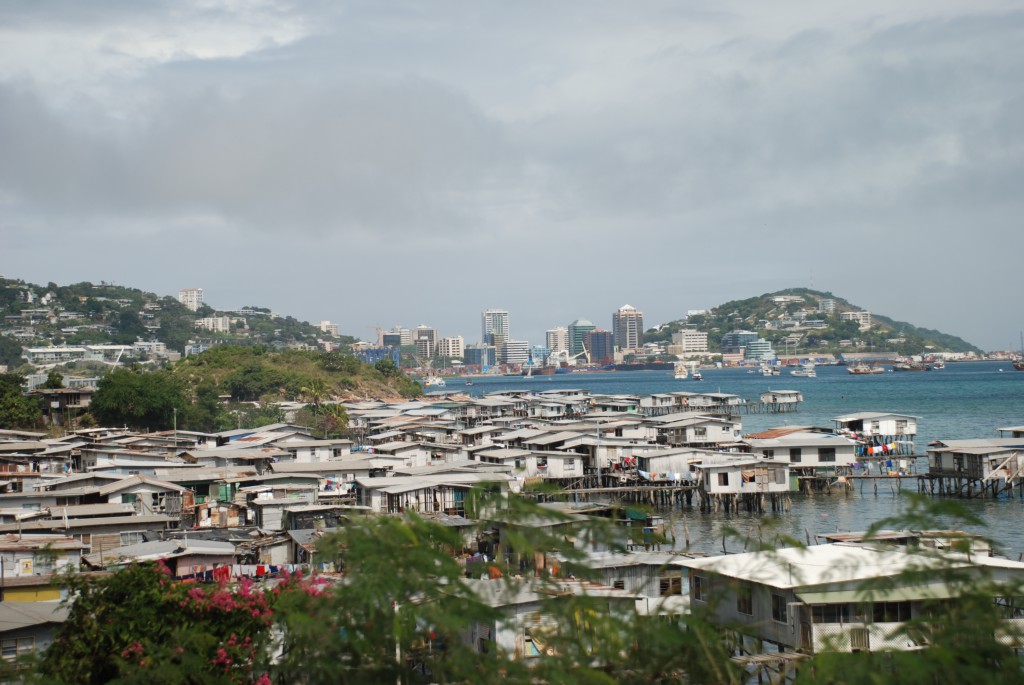 Legislation and the political will
Legislation and the political will
According to a 2015 study by the Australian National University, PNG’s legal system has possessed, since 2013, (controversial) laws putting violent acts related to sorcery under death penalty. Despite the legal grounds to persecute such violence, the lack of legal enforcement results in a majority of cases that either remain undiscovered or unpunished. Executive authorities with insufficient funding are often cut-off from the affected areas – the police forces sometimes even lack the funds to pay the gas to reach remote mountain areas. Furthermore, the social community seems to accept the ‘witch hunting’. This is why most of the alleged ‘witches’ are judged by arbitrary community trials following cruel tribal laws. The fact that entire villages are involved in these criminal acts makes it hard for police forces to identify the culprits. Thus, who is finally to blame? The actual executers often hide in the remoteness of the mountains and provide mutual protection to evade legal persecution.
The government is hence urged to find a solution to reach farther into the remote rural areas and their communities to fight this ever-increasing reappearance of this systematic form of cultural violence. However, it is questionable if such general belief systems can be eradicated by a top-down approach in the form of state legislation. PNG’s government has repeatedly been accused of failing to correctly address this issue. What is more, international NGOs such as Amnesty international or Oxfam are predominantly involved in local preventative interventions and have been major actors in pushing legal reforms and policies.
According to representatives of the Missionary Association of PNG (MAPANG), it seems that Christian reformism has also made an important impact on the mind-set of the population by overcoming culpability and revenge practices. Christianity arrived in PNG over 100 years ago and an astonishing 96% of the inhabitants perceive themselves as Christians – even if it appears that their beliefs adhere to mysticism, cosmology and supernatural powers.
Is it not ironic that the institutions that formerly practiced witch hunting and exorcism in PNG are the very same ones that today try to fight these practices?
Today, Monica Paulus, an alleged witch who managed to escape her execution, independently works in the Highlands Region and links authorities, NGOs and the victims of sorcery-related- violence. She claims that another implication of the recent legal reforms is ”now the perpetrators will fear that they might be sentenced to death and will do everything to eliminate all the witnesses to their crimes, including those people who help the survivors.”
Finally, it may be said that only a multiple-stakeholders approach could bring satisfactory results, according to Kate Schuetze, Amnesty International’s Pacific Researcher: “Papua New Guinea’s authorities must once and for all bring a halt to attacks against alleged ‘sorcerers’ and systemic violence against women. This should include addressing the root causes of these attacks through education and working closely with civil society, as well as taking immediate measures such as establishing shelters for women escaping violence.”
By Alexandra Bussler
Image Credit:
Picture 1: Taro Tyler, licensed under CC BY 2.0
Picture 2: The Commonwealth Secretariat, licensed under CC BY-NC-ND 2.0
Picture 3: The Blackthorn Orphans, licensed under CC BY-NC-ND 2.0
